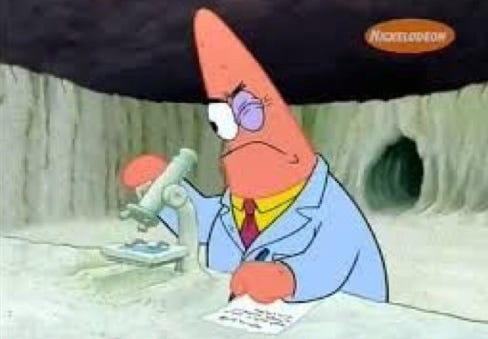Over the past year, I’ve slowly begun to accept that good work involves tediousness. But, I’m now convinced that an even stronger version of this statement should be true:
Not only does good work involve tediousness; good work should be tedious.
And this fact can be used to our advantage. The feeling of tediousness is a signal that you’re onto something juicy. It’s a signal that what you’re working on is important and that you should keep going. It’s a signal that you should keep asking more questions and try to get it done. There is a caveat here though - this only works provided you’ve made a best effort to automate everything else. In other words, the feeling of tediousness is only a signal if it’s ‘good’ tediousness.
Here’s why.
‘Good’ tediousness comes from repetitive, hard tasks left over after you’ve automated what you can. ‘Bad’ tediousness comes with repetitive tasks that could be easily automated but are done manually anyway because you’re too lazy to automate them.
So why is ‘good’ tediousness a signal that you’re working on something good and worthwhile? Let’s talk about it in the context of research. I think good research by definition is the discovery of new things. If those things were actually new, it would mean that the tools to discover those things haven’t been built yet. So if you’ve already built tools to automate what you can, and haven’t been able to find the tools to do it online, and still find yourself doing tedious tasks, it means you’re in unexplored territory. It means that you’ve come across special cases that are not easily understood.
Here’s an example. Part of my research with molecules involves trying to compute the light they might absorb. There is definitely a part of this which I find extremely tedious. To test new molecules, I need to create a vast amount of them digitally by hand, with a mouse and keyboard, in an editor on my computer. I then have to drag and drop the atoms and bonds in the right place, to make the shape that I want.
There is literally no skill required for this, other than some chemistry awareness. It’s boring as hell. Some parts, but only some, can be automated with effort. If I can create one manually, I can use a script to create several different variants. But for the most part, its manual, because if I want to make one with a really different shape, I’m going to have to draw it like how a kid draws a picture on MS paint.
The awareness of this tediousness made me think. Is there a better way to do this? And there genuinely wasn’t. I’ve tried, and failed, to find datasets online trying to accomplish what I’m doing, and to automate it. And so this has acted as a strong signal that I’m working on a research gap, because no one else has bothered to see this through to completion. I’ve learned that this subset of molecules that I’m building is relatively new ground, since if it existed it would’ve been easily found on google. I’ve learned that making this dataset is likely to be something new, all because I’ve noticed the tediousness involved that is not easily automated away. People can use this, because I need to use it.
Often, the tediousness main meat of a spectacular result. Modern AI wouldn’t be what it is today if not for the tedious efforts of Fei-Fei Li to collect image labelling data. Modern biochemistry wouldn’t be what it is today if not for the tedious experiments of Venki Ramakrishnan to characterise the ribosome. The tediousness is the work. And sometimes, it can be enjoyed, like a child painstakingly building a city out of lego.
And so often, the tediousness is actually a source for research questions. This is because trying to automate a currently unautomatable process is a challenging and interesting problem. And this can spark other questions. For example, another tedious part of my research in chemistry is manually labelling ‘orbitals’, which are distributions of electrons that a computer spits out around a molecule. But then I asked - why can’t I use machine learning or image recognition to automate the labelling of orbitals? It turns out that other people were thinking about that too, and so I realised I stumbled across a good research problem by embracing tediousness.
So next time I feel this way doing a tedious task, I won’t feel anxious about it. Rather, I’ll use it as an advantage. Usually, I am really careful about ‘working too hard’, and being inefficient. But this is an exception. This is why tedious is good.
Something about this does make me sad though. Maybe in the future, with all of our advances in machine learning, our sole job as human scientists will be tediously creating datasets for the algorithms to learn from. We won’t have to think about theories or mechanics. We might just end up as organic curators tediously gathering examples from the natural world.
